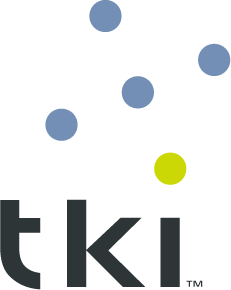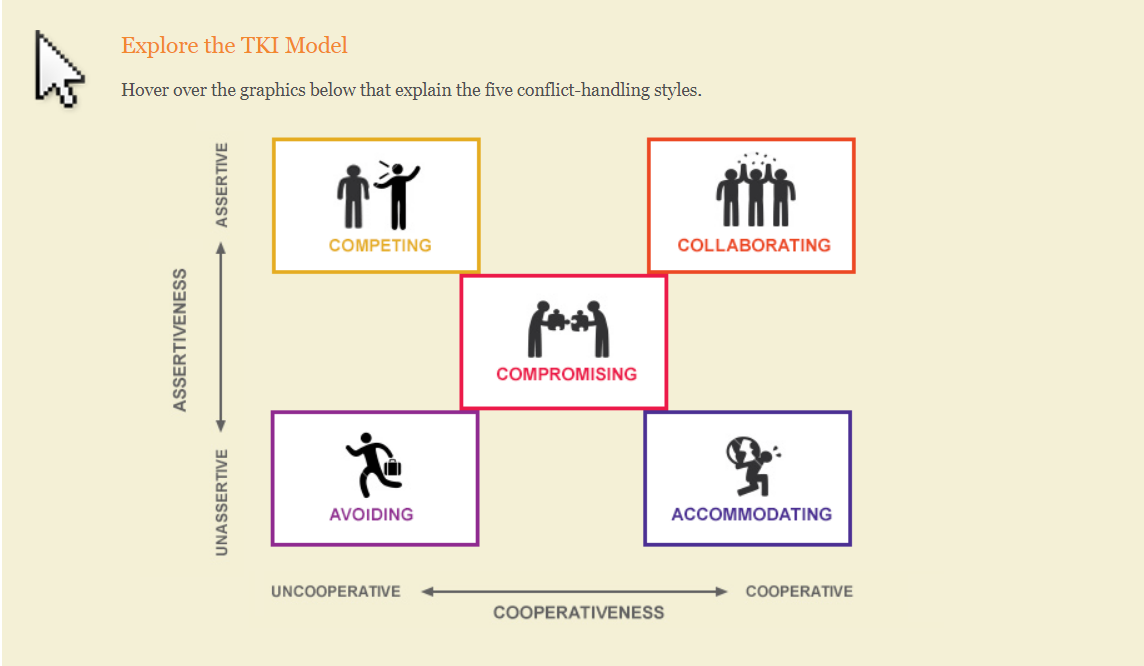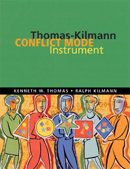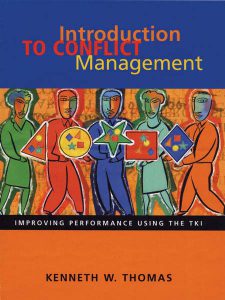
Thomas-Kilmann Conflict Mode Instrument (TKI® )
Reduce conflict and help your people work together more effectively.
Quick Links:

Join our monthly complimentary TKI® sharing sessions to find out more.
Conflict can negatively affect productivity, decision making and retention. By resolving conflicts more effectively, you can strengthen your organisation and improve results. Make conflict management a core competency and create a satisfying and productive work environment throughout your enterprise.
The Thomas-Kilmann Conflict Mode Instrument (TKI® ) tool is the world’s best-selling tool for helping people understand how different conflict-handling styles affect interpersonal and group dynamics—and for empowering them to choose the appropriate style for any situation.
The TKI® assesses an individual’s behaviour in conflict situations and describes it along two dimensions: assertiveness and cooperativeness. The instrument provides detailed information about how that individual can use the five different modes, or styles – competing, collaborating, compromising, avoiding and accommodating – effectively. The TKI® model demonstrates that these different behaviours are neither good nor bad but simply different ways of dealing with conflict. This research-backed instrument offers a practical way to initiate safe and calm, yet purposeful dialogue, to resolve or manage conflict.
How can you use the Thomas-Kilman Conflict Mode Instrument?
Your organisation can use the TKI® as the foundation for conflict literacy – for developing a common language that helps people think and communicate clearly about conflict and how to manage it through the opportunities provided for accepting differing viewpoints, enhancing communication and improving productivity, team cohesion and retention.
Take a moment to view the following video on the five conflict-handling styles.
Explore the TKI® Model

Applications
The TKI® assessment is ideal for a wide range of applications, including:
- Conflict management—to identify different conflict-handling styles and to learn how to choose the appropriate style for any situation
- Team building—improves team functioning by helping members reconcile differences and work together more effectively
- Leadership development—enhances leaders’ conflict management skills
- Performance improvement—helps eliminate barriers to effective performance
- Stress reduction—gives employees the capacity and tools to identify and manage workplace stress
- Retention—helps employees be successful, improve morale, and stay engaged in order to build a stronger organization and retain the best talent
Key Benefits
- Offers five practical, situation-specific styles for dealing with conflict effectively
- Demonstrates how and when to use each conflict-handling style
- Improves organisational productivity by helping people gain insight into their own and others’ behaviour – which, in turn, helps them make better choices about outcomes
- Helps trainers, managers and other professionals open one-on-one or group discussions around conflict
- Reflects today’s gender, racial, ethnic, age and job-level diversity in the workplace, based on an updated normative sample
- The TKI® is unrestricted and requires no special training to administer or interpret
TKI® Brand Portfolio
A comprehensive suite of support materials is available to help you quickly and easily begin using the TKI® tool. This product line gives you the knowledge and confidence to be an effective coach for your clients and to help them start managing conflict immediately and productively.
TKI® Key Highlights
- Provides two options for assessment—TKI® Profile and Interpretive Report (online) or self-scorable booklet (paper-and-pencil format)
- Offers a variety of support materials, including booklets, digital activities, and content-packed training programs to effectively deliver workshops
Other Available Translations
Please note that translations are available for selected TKI® products and assessments in the following languages:
Chinese – Simplified and Chinese – Traditional
The TKI® instrument is an unrestricted instrument and requires no special training to administer it and access the reports.



